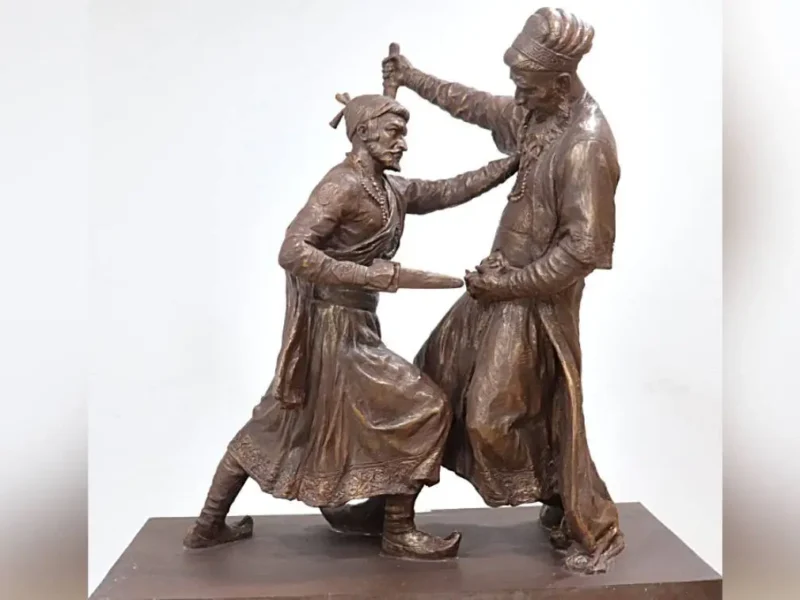With Social Shift In Attitudes, India Forced To Look At Eldercare
NEW DELHI (IANS) – In the recent annals of Bollywood, a remarkable transformation has taken root, one that has seen the celluloid tapestry donned with threads of empathy and enlightenment. A veritable renaissance has unfolded, as the tinsel town, long enraptured by the allure of youth, has pivoted its gaze toward the wisdom etched into the wrinkles of the elderly.
In a heartwarming symphony of sentiment and sagacity, Bollywood has unveiled a tapestry of tales that resonate with the universal chord of filial piety and responsibility, intertwining narratives with the golden strands of age.
From the poignant “Goodbye” to the heartwarming “Piku,” and the uproarious “102 Not Out” to the heartening “Bhagban,” the cinematic canvas has unfurled a treasure trove of stories, all echoing the same profound refrain: the venerable souls who raised us, deserve our unwavering devotion and care.
In a grand pageant of empathy, films such as “Lage Raho Munna Bhai,” “Kapoor & Sons,” “Rajma Chawal,” and many more, have heralded a new dawn of awareness, shining a spotlight on the joys and tribulations of aging, and the delicate art of nurturing the elderly.
Through their eloquent storytelling, they have prompted soul-searching dialogs on the profound significance of familial bonds and the ethical responsibility of safeguarding the legacy of our elders. As Bollywood continues to weave its enchanting tapestry with threads of elder-care narratives, it nurtures a society where the silver-haired are revered, cherished, and loved, offering a timeless lesson on the art of filial devotion.
In recent years, the pressing issues that affect our senior citizens have emerged from the shadows and thrust into the spotlight of public discourse and policymaking.
Tarun Sharma, CEO and Founder, of Yodda Elder Care and an expert on elder care-related subjects, shared his views, “Elderly care in India is a topic of increasing significance in a nation where traditions of respect for elders have long been upheld. With a rapidly ageing population, the importance of providing adequate support, healthcare, and companionship to senior citizens is more pronounced than ever. India’s elderly, often revered as repositories of wisdom, face a myriad of challenges, including health issues, loneliness, and financial insecurities. While there have been positive strides in recent years, with greater awareness and the emergence of organizations dedicated to elder care, there is still much work to be done. The evolving landscape of elderly care in India calls for comprehensive policies, intergenerational understanding, and a collective commitment to ensure that our elders can age with dignity, surrounded by the love and care they rightfully deserve.”
Indeed, the sands of time are shifting, and India finds itself at the precipice of a profound demographic transformation. The inexorable increase in the number of elders is a compelling testament to this unfolding narrative. According to the 2011 Census, India counted 104 million individuals aged 60 and above, constituting a formidable 8.6% of the total population. A more recent report, the “Technical Group on Population Projections for India and States 2011-2036,” paints a striking portrait of change, estimating that the nation was home to nearly 138 million elderly persons in 2021, with expectations of a further surge by approximately 56 million by the year 2031. This exponential rise underscores not only the urgency of addressing elder-related issues but also the imperative of forging a compassionate and inclusive society where the golden years of life are met with dignity, care, and respect.
Speaking about the development in elderly care in India, Saumyajit Roy, CEO and co-founder at Emoha, said, “In recent years, there has been a notable transformation in elderly care in India. What has changed significantly is the heightened awareness and recognition of the unique needs and challenges faced by senior citizens. A shift in societal attitudes towards aging has led to increased efforts to address these concerns, resulting in the establishment of specialized senior care facilities, the development of elder-friendly policies, and a growing number of non-governmental organizations dedicated to the welfare of the elderly. Moreover, advancements in healthcare technology and improved access to medical services have contributed to better healthcare outcomes for senior citizens. While these changes are promising, there remains a pressing need for continued advocacy, increased resources, and enhanced support systems to ensure that the elderly population in India receives the comprehensive care and respect they deserve in their twilight years.”
Caring for elders in India is not merely a moral imperative; it is an embodiment of the nation’s rich cultural heritage and a testament to its values of compassion and respect for the wisdom of age. India’s elders have often played a pivotal role in shaping the fabric of society, imparting invaluable knowledge, and nurturing the next generation.
“What needs to be done in the realm of elderly care in India is a holistic and concerted effort that recognizes the evolving needs of our senior citizens. This includes the development of comprehensive healthcare services tailored to the aging population, the establishment of elder-friendly communities that foster social inclusion, and the implementation of supportive policies that safeguard their financial well-being. Moreover, raising awareness about elder abuse and neglect is crucial, alongside fostering a culture of respect and gratitude towards the elderly. Family and community support systems need strengthening, and intergenerational bonding must be promoted to combat loneliness and isolation. The journey toward enhanced elderly care in India is an ongoing commitment, one that requires collaboration between individuals, communities, and government bodies to ensure that the twilight years of our elders are filled with dignity, comfort, and the warmth of our collective care,” Tarun Sharma added.
As the country progresses into the modern era, it is essential to recognize that the well-being of elders is not just a familial responsibility but a societal duty. India’s demographic landscape is rapidly ageing, and neglecting the care of its elderly would not only undermine the nation’s moral fiber but also squander a vast repository of knowledge and experience that can contribute to its progress. To care for elders is to honour the past, enrich the present, and ensure a harmonious future, where the dignity and welfare of the elderly remain integral to the collective conscience of the nation. We must pledge to protect and ensure better care for our elders.






Vijay
/
It is about time to care for the elderly with respect they earned!
January 13, 2024